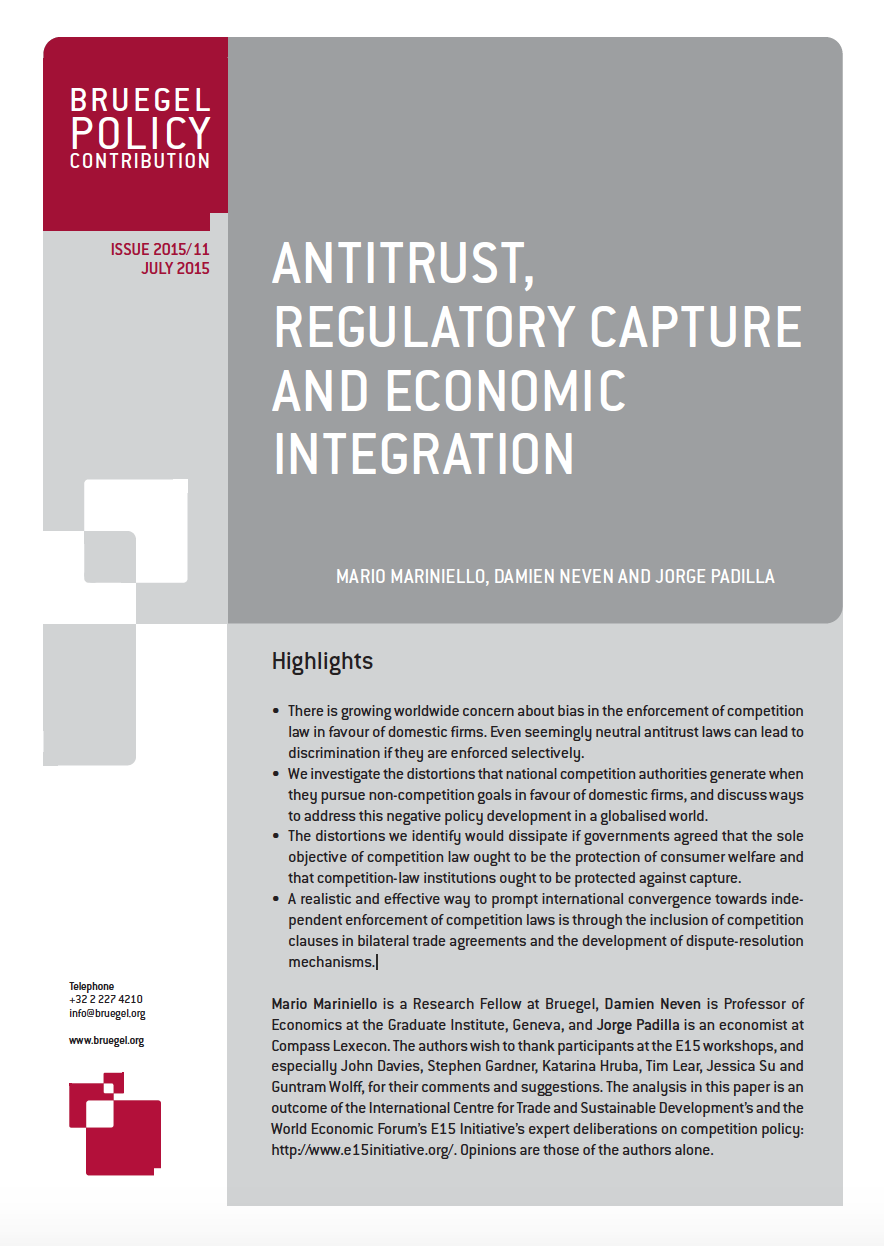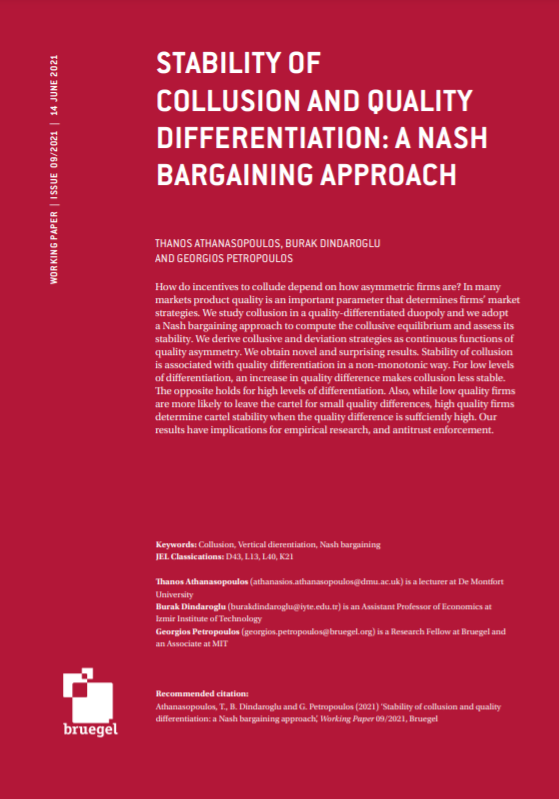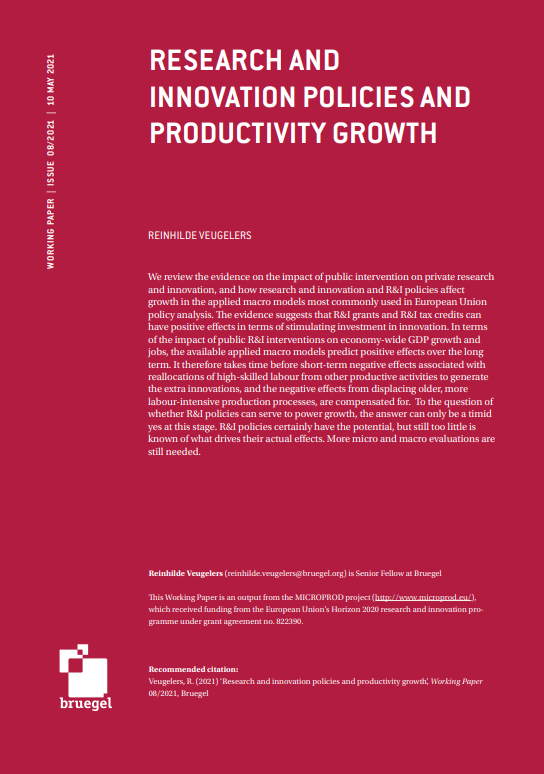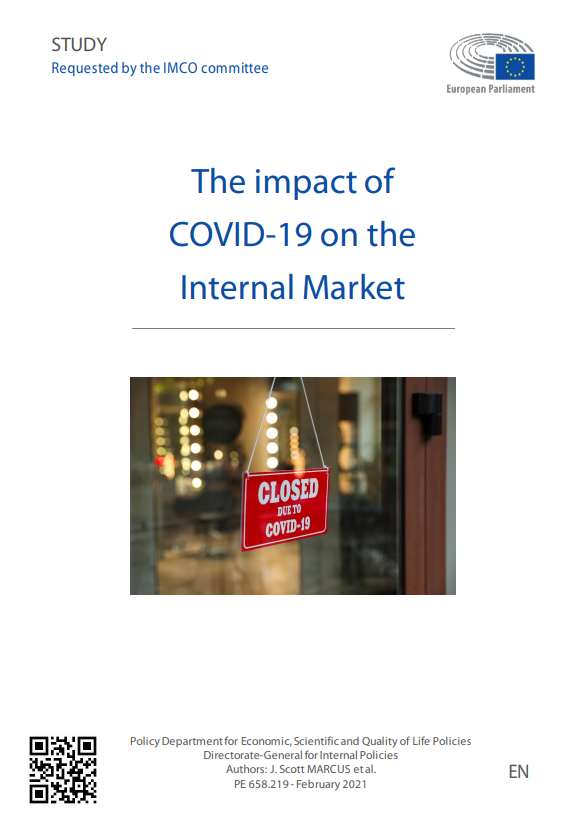Policy Contribution
Antitrust, regulatory capture and economic integration
The paper investigates the distortions that national competition authorities generate when they pursue non-competitive goals in favour of domestic firms, and discusses ways to address this negative policy development in a globalised world.
Highlights
– There is growing worldwide concern about bias in the enforcement of competition law in favour of domestic firms. Even seemingly neutral antitrust laws can lead discrimination if they are enforced selectively.
– Authors investigate the distortions that national competition authorities generate when they pursue non-competition goals in favour of domestic firms, and discuss ways to address this negative policy development in a globalised world.
– The distortions identified in the paper would dissipate if governments agreed that the sole objective of competition law ought to be the protection of consumer welfare that competition-law institutions ought to be protected against capture.
– A realistic and effective way to prompt international convergence towards independent enforcement of competition laws is through the inclusion of competition clauses in bilateral trade agreements and the development of dispute-resolution mechanisms.















